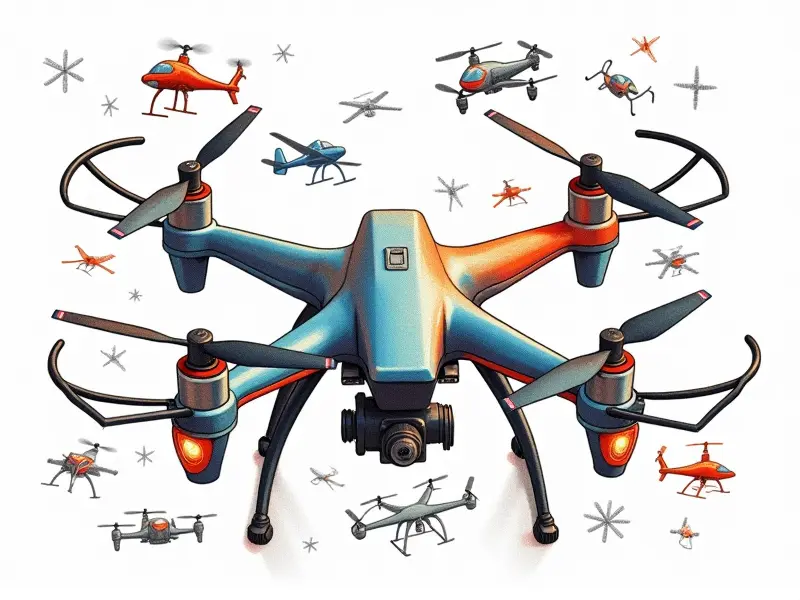Are RC airplanes safe for kids?

Are RC Planes Safe for Kids?
The world of remote control (RC) airplanes offers an exciting and educational hobby for children, but safety is a paramount concern. Parents often wonder if these miniature aircraft are safe for their kids to operate. This article delves into the various aspects of ensuring that RC planes can be enjoyed safely by young enthusiasts.
Best Age to Start with RC Planes
Determining the best age to introduce children to RC airplanes is crucial. While there's no one-size-fits-all answer, most experts recommend starting around 8-10 years old. At this age, kids have developed enough hand-eye coordination and attention span to handle the controls effectively.
Parent's Guide to RC Plane Safety
Parents play a vital role in ensuring their children’s safety while flying RC planes. This guide covers essential steps such as selecting appropriate models, setting up a safe flying area, and teaching proper handling techniques.
Selecting Appropriate Models
- Size: Opt for smaller models that are easier to control and less likely to cause injury if mishandled.
- Battery Type: Choose lithium polymer (LiPo) batteries over nickel-cadmium (NiCd) or nickel-metal hydride (NiMH), as they offer better performance and safety features.
Safeguarding the Flying Area
- Open Space: Ensure there is ample open space free from obstacles like trees, power lines, or buildings.
- No People Nearby: Avoid flying in areas where other people might be present to prevent accidental injuries.
Tips for Teaching Handling Techniques
- Start Indoors: Begin with indoor models or simulators to build basic skills before moving outdoors.
- Supervised Practice: Always supervise your child during practice sessions until they demonstrate proficiency and responsibility.
Kid-Friendly RC Aircraft Options
Several manufacturers produce RC planes specifically designed for children. These models come with features that enhance safety and ease of use, such as:
- Educational Models: Designed to teach basic principles of aerodynamics.
- Built-in Stability Systems: Help maintain flight stability even when control inputs are minimal.
Ensuring Safety in RC Flying for Children
To ensure a safe and enjoyable experience, consider the following safety measures:
- Wear Protective Gear: Use goggles to protect eyes from debris and helmets if flying near obstacles.
- Regular Maintenance: Keep RC planes in good condition by checking batteries, propellers, and other components regularly.
RC Airplane Safety Tips for Beginners
Newcomers to the hobby should follow these tips to minimize risks:
- Read Manuals Carefully: Understand all instructions before attempting flight.
- Practice Ground Control: Get familiar with controls on the ground before taking off.
Is It Safe for Kids to Fly RC Planes?
The safety of flying RC planes depends largely on proper education, supervision, and adherence to guidelines. With the right approach, children can enjoy this hobby safely while learning valuable skills.
RC Planes: A Safe Hobby for Kids?
Yes, RC airplanes can be a safe and rewarding hobby for kids when approached with caution and care. By selecting appropriate models, educating young flyers, and maintaining vigilance, parents can ensure their children have an enjoyable and secure experience.
Choosing Safe RC Models for Kids
Selecting the right model is crucial to safety. Look for options that are durable, easy to control, and come with built-in safeguards against crashes or malfunctions.
Age-Appropriate RC Airplane Choices
Consider age-appropriate models based on your child's developmental stage:
- Ages 8-10: Simple, easy-to-fly indoor/outdoor models with basic controls.
- Ages 11-13: More advanced models with additional features like stability systems and GPS tracking.
Safeguarding Kids While Flying RCs
Maintaining safety during flight involves continuous monitoring, enforcing rules, and encouraging responsible behavior. By doing so, parents can foster a love for aviation that is both thrilling and secure.
Conclusion
Flying remote control airplanes can be an enriching experience for children when approached with the right mindset and precautions. With careful selection of models, proper training, and vigilant supervision, kids can safely explore this fascinating hobby while developing important skills such as coordination, problem-solving, and responsibility.

